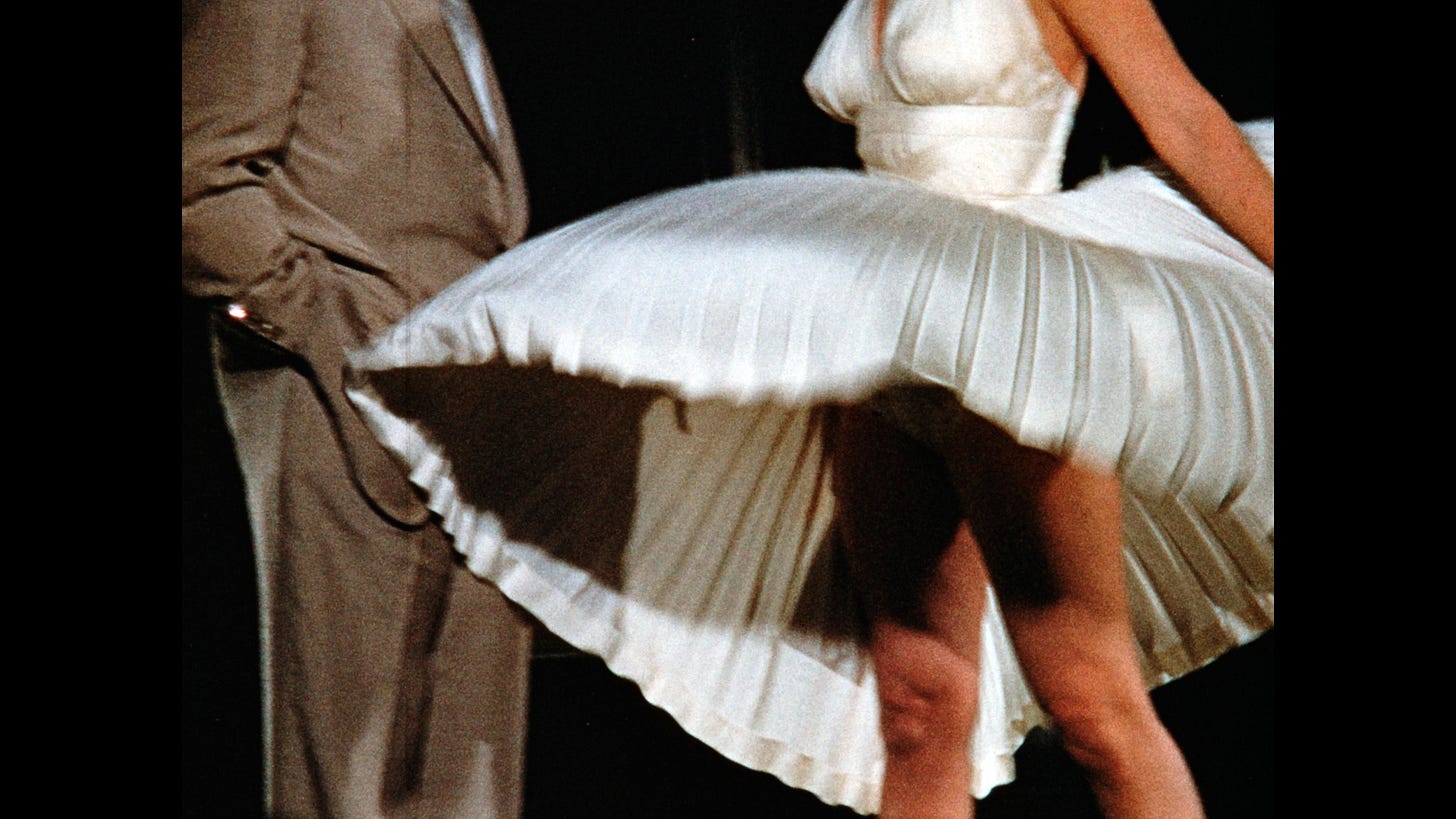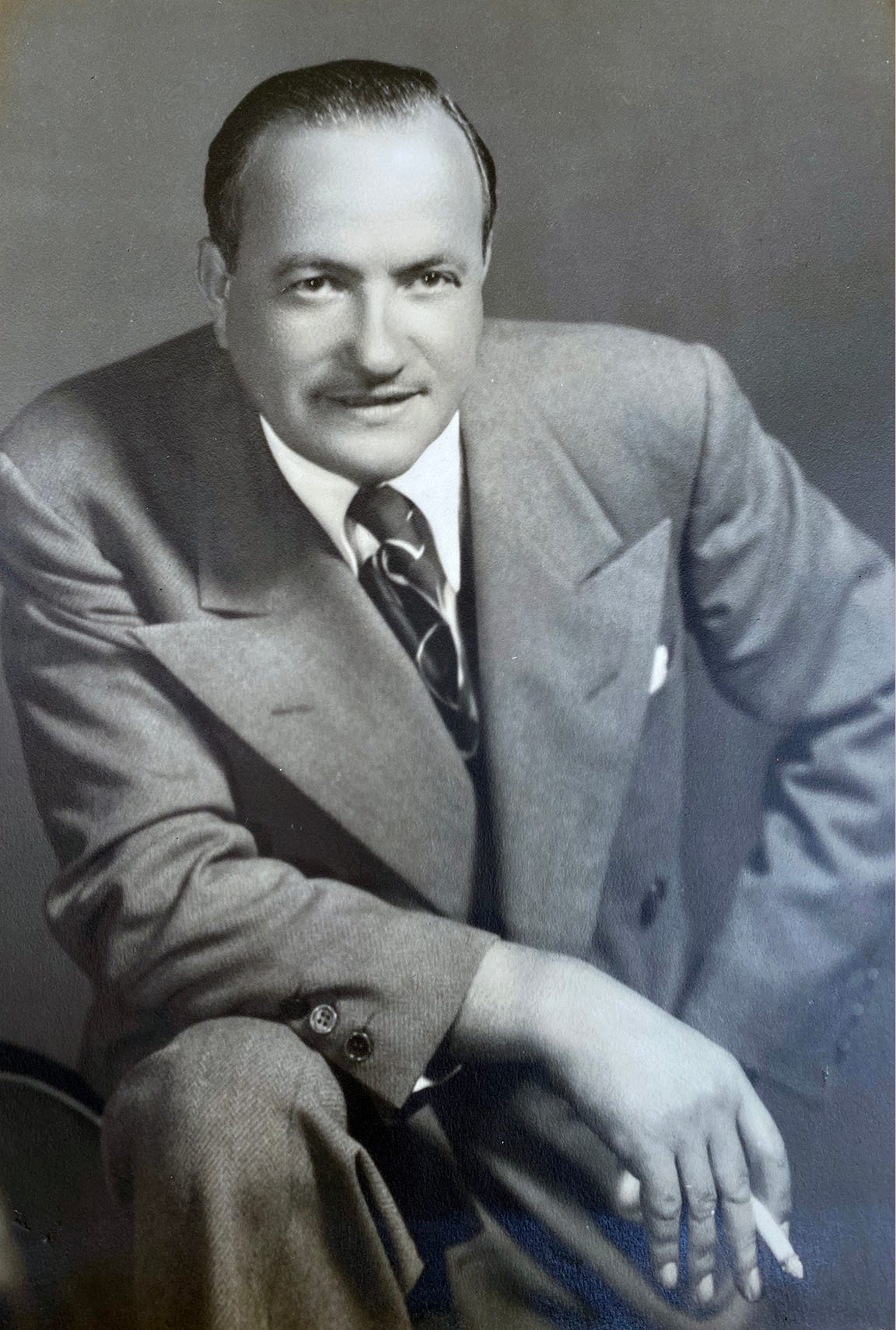Welcome back to SOURCE NOTES, in which I gab with primo narrative-history authors about the stories behind their stories. Today I bring you journalist and author Helene Stapinski, best known for her acclaimed true-crime histories about her family’s past in a) Southern Italy (MURDER IN MATERA) and b) our mutual birthplace/childhood stomping ground of Jersey City (FIVE-FINGER DISCOUNT). In Stapinski’s new book from Simon & Schuster, THE AMERICAN WAY: A True Story of Nazi Escape, Superman, and Marilyn Monroe, she digs into the unbelievable family history of her co-author, graphic designer Bonnie Siegler. Without further ado…
Describe the threads that come together in THE AMERICAN WAY.
The book is about a guy named Jules Schulback, who escaped Nazi Germany in 1938, with the help of the publisher of Superman [for DC Comics]. He was his financial sponsor to come over, Harry Donenfeld. Jules settled in New York City and, in 1954, he was there the night Marilyn Monroe's dress blew up on the subway [when she was filming what would become an iconic image for The Seven Year Itch]. He was not a filmmaker, but he loved to take home movies and he shot her that night, and his footage is the last remaining footage from that night, because the scene was re-shot on a sound stage in Hollywood. So the book’s basically those three prongs: Nazi Germany, Superman, and Marilyn Monroe.
The book grew out of a New York Times story you wrote in 2017 about Schulback and the discovery of that incredibly rare footage by Bonnie, his granddaughter.
Bonnie had found that footage about ten years earlier. She was cleaning out his apartment. He was moving from one side of the city to the other. He was evicted, and while she was cleaning out his place, she found this footage of Marilyn Monroe that she had always heard about, but didn't really—well, she kind of believed it, but she wasn't sure.
She was skeptical.
Yeah. But she found it, and she watched it with her husband, who's a filmmaker, and they showed it to some friends, and then she just put it in a drawer. And then when Trump was running, and all the fascism stuff was bubbling up, she got all freaked out and was like, What can I do? What do I have at my disposal? And she remembered this footage and she said, Maybe I can get somebody to write a story about my grandfather shooting the footage, but also tell the story about him escaping from Nazi Germany. So she asked someone if they knew anybody [who could write the story] and they were like, I know just the person! So we met and totally hit it off and I pitched it to the Times and it was one of those magical stories that went viral.
Did your agent immediately decide this was your next book?
No. Actually, it got an optioned for a movie, and Bonnie was a consultant on the movie, and a script was written, but it got dropped eventually. It was like two, three years later when she said to me, You should write a book about my grandfather. This was like, two seconds before the pandemic. We worked on it the whole pandemic. That's all I did basically, work on the book, but it was hard because we couldn't go anywhere.
I was in the middle of researching my book when the pandemic happened and I suddenly found myself at the mercy of very kind library archivists who were willing to scan and email documents for me.
Same thing. There's this guy who did a book about Superman a number of years ago. It's like the Bible on Superman, and he put his archive at Columbia University. So everything you ever wanted to know about Superman is in boxes at Columbia. We had the comics archivist show us each piece of paper.
Like, over Zoom?
Yes. I looked at like, a hundred boxes. We told her what we wanted and she would make a copy and email it to us. That took weeks. And then with the public library, a lot of the books I used for research, they would send me in the mail.
What other archives did you draw on?
A lot of it was at the Holocaust Museum in Washington, DC. Bonnie did most of that research, because a lot of times you have to be a family member. She found incredible stuff that no one in her family knew, like that her great-grandparents died in a gas van outside of Minsk. Everyone knew they were dead, but no one in the family knew what happened to them, and we found out exactly what happened to them. We had a guy there named Jude Richter who was amazing. He was in constant contact, constantly digging stuff up for us.
You also had access to this trove from Bonnie’s family.
Basically anybody who was still alive, we interviewed. Like, people Bonnie had never spoken to before in her family. We just interviewed dozens of people, anybody who knew anything about anything. We talked to them once, twice, three times, sometimes ten. We would do those interviews on Zoom. We found testimony that several family members had given before they died, so we were even able to gather information from people who weren't alive, these two to three hour tapes. The Museum of Jewish Heritage in downtown Manhattan, they were incredibly helpful. Anything I didn’t have [from the family members], I went and I got just hours and hours and hours of footage of testimony from people who were in the exact same places, at the exact same times, as our characters, so I could fill in the blanks. That was really hard after a while. I would be in a bad place and I then I would switch gears.
I was gonna ask you about that, like if it messed with your head ping-ponging between this really dark, tragic material and these fun subjects.
It was actually a good thing. You can only do the Holocaust for so many weeks in a row before, like, you want to just jump in the river, you know? Humanity is just so awful. So then I would stop and take a break and do some Marilyn research. I didn't know anything about Marilyn Monroe when I started this. I thought she was just this bubble-headed blonde and I didn't really respect her at all, and after all the research, I felt like such a jerk, because she was amazing. Way ahead of her time. She owned her own studio, she was pushing the boundaries of sexuality for women. It just blew my mind.
What were some of your favorite finds?
There were so many. I was reading a book about Marilyn, one of the many, and near the very last page, like past the index and everything, is a picture of her covered in magazine covers from 1946, before she was a movie star. I'd never seen this picture before. I look at the picture—and at this point I know everything about Harry Donenfeld, the publisher of Superman, because I've been researching him for the last year—and the covers that she's covered in are his magazines. He was a girly magazine publisher before he went to into the comics business. So it was like, everything was kind of crashing together, because we had the connection between Harry and Jules, and we had the connection between Jules and Marilyn, but we didn't have the connection between Marilyn and Harry. It was just one of those aha moments. I called Bonnie right away.
You and Bonnie also went to Berlin.
I didn't think we were gonna go because by the time everything opened up, we had a rough draft of the book. She was like, no, we need to go. The minute the doors opened in Germany we went to Berlin, and her son came with us too. I’d just assumed everything would be gone, you know, where he lived and all that stuff. But by some miracle, the places he lived and worked were still standing. His apartment building, the place where his first job was. So instead of just saying, this Nazi official tipped him off in this building to leave the night before Kristallnacht, I can actually describe what the hallway looks like. I'm just so glad we went.
And Bonnie learned a lot about her family.
We spoke to people she had never spoken to before, and she didn't know their stories. Other people, she sat next to at Passover dinner for years and didn't know that they had escaped the Nazis in ‘37 or whatever. With our book tour, we usually end on, please go and talk to your relatives before they die. It's so important to get those firsthand accounts. If you wait, sometimes it's too late. For one of my classes that I teach, a reporting class, I have my students interview Holocaust survivors, because they're not gonna be around much longer. You gotta get it down.
CLICK HERE TO BUY THE AMERICAN WAY
MORE SOURCE NOTES:








